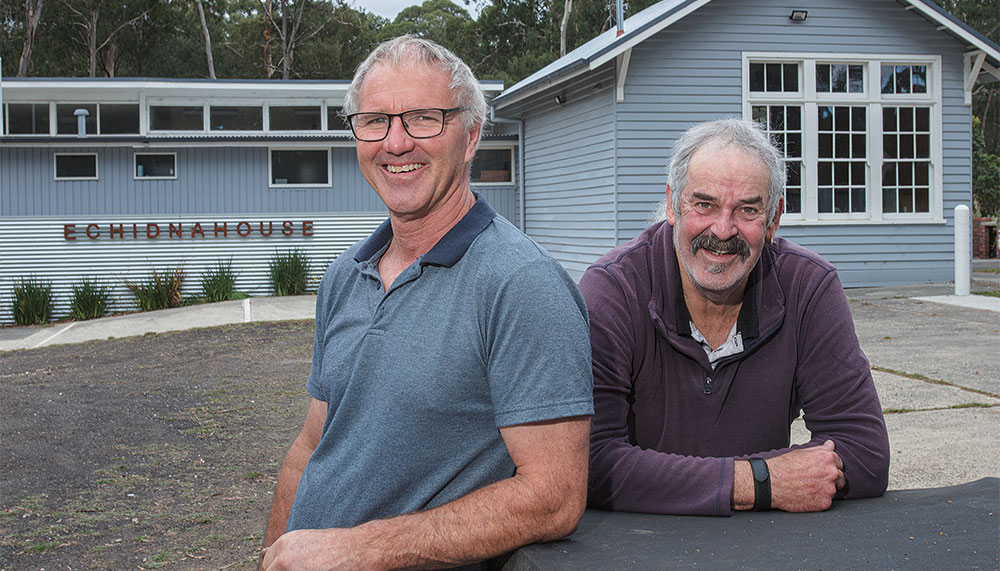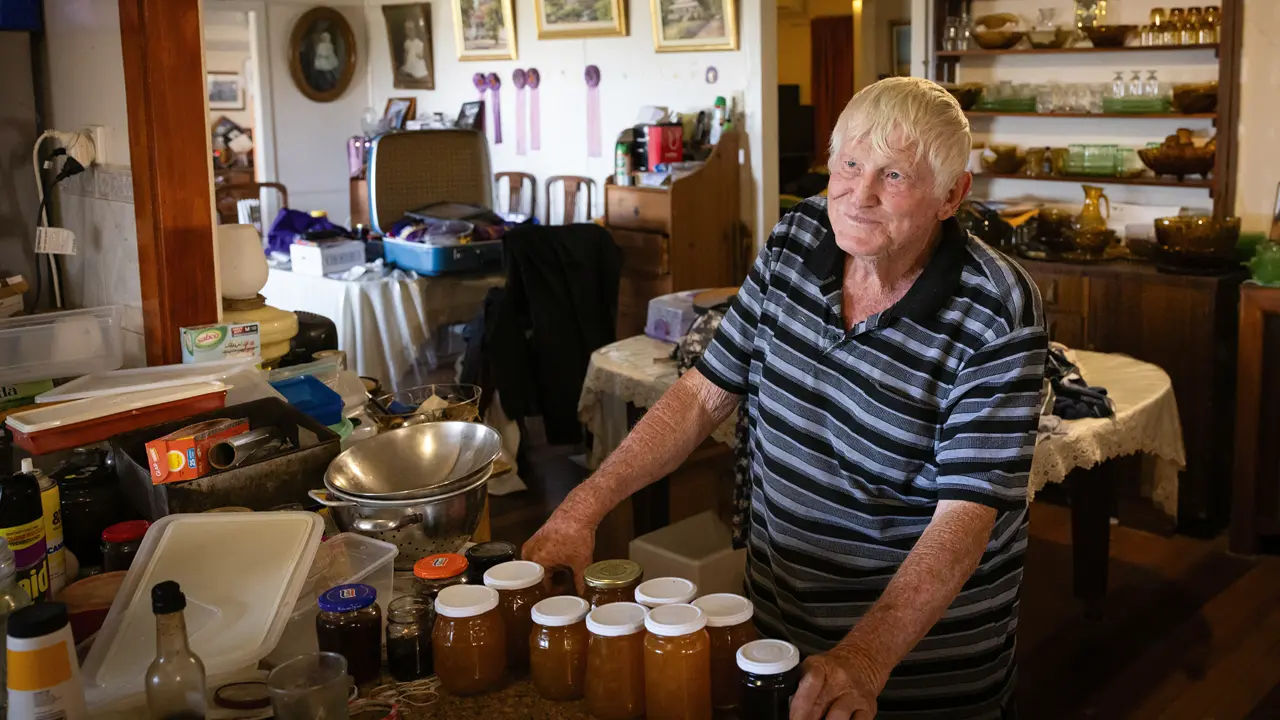The Gardiner Foundation has been supporting dairy communities for 20 years.
Story Amanda Burdon Photo Neil Newitt
Tucked in a wooded valley in the foothills of the Otway Ranges, Kawarren Primary School served its farming community for almost 100 years, until dwindling enrolments forced its closure in 2008. It was a big loss to a small town comprising just the school, a tennis court and fire shed.
Within months, the timber building was falling into disrepair and being vandalised, and the grounds had become an overgrown fire risk. “When the school closed, we lost our community hub,” long-time local Neville Towers says. “All our meetings – for the tennis club, the fire brigade and land management groups – were held there. Suddenly there was nowhere to gather or to welcome newcomers to the area.”
But within a year, a local committee had formed – the Kawarren Recreation Reserve Committee – and, after much community consultation and government wrangling, the committee was appointed manager of the building and its surrounds. Today, repainted and rebadged Echidna House, the old school is once again the beating heart of the scenic town.
COVID notwithstanding, it hosts yoga classes, a weekly playgroup, musical performances, events and information sessions, Sunday markets and sometimes weddings. The cost of hire is minimal, so it’s again the venue for most community meetings.
There is an important safety function, too, says Neville’s wife Chris. “Kawarren was identified as one of the 52 highest risk locations for bushfire after Black Saturday,” Chris says. “Mobile phone, radio and television reception can fluctuate and internet access is also variable. The Country Fire Authority (CFA) has now co-located to the site, in a new, larger fire station, and on days of severe fire risk people call in to talk with CFA and Echidna House volunteers to get information.”
Without Echidna House, the locals can’t imagine what they would do. “It’s gorgeous now that it’s renovated and the grounds are well maintained, like a lovely bushland park,” Chris says. “People that you wouldn’t otherwise see come in on market days, which give others a place to sell their produce. It’s nice that the old school now belongs to the community and we can all enjoy it.”
Without seed funding from Gardiner Dairy Foundation, now celebrating its 20th year of offering small grants to Victoria’s dairying communities, it’s unlikely that Echidna House would exist at all, let alone be sporting a new commercial kitchen, shaded children’s playground or deck extension.
“Once we started getting some small grants from Gardiner, it galvanised our volunteers and boosted morale,” Neville says. “It led to more volunteers coming on board, and gave us the ability to get bigger grants to do more. The community began to take pride in what it could do.”
The Gardiner Dairy Foundation was established after the deregulation of the state’s dairy industry, bringing farmers, processors, manufacturers and the Victorian Government together in a bid to boost the sector’s competitiveness. Income on the initial $62 million invested from the sale of milk assets now supports research and development (largely in collaboration with Dairy Australia and Agriculture Victoria), and people and community development that includes grants of up to $5,000 each.
This story excerpt is from Issue #143
Outback Magazine: June/July 2022










